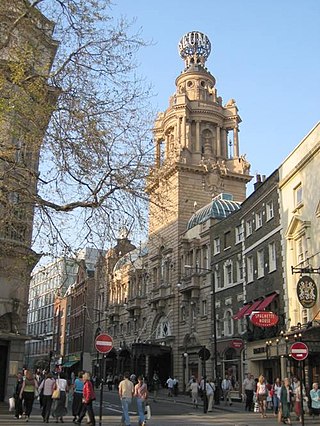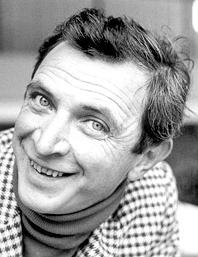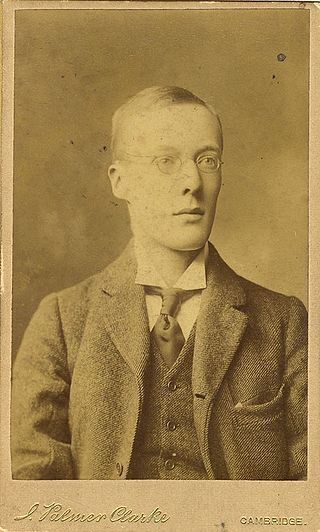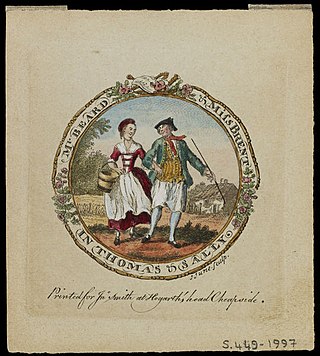Related Research Articles

English National Opera (ENO) is a British opera company based in London, resident at the London Coliseum in St Martin's Lane. It is one of the two principal opera companies in London, along with The Royal Opera. ENO's productions are sung in English.

Sir Robert Murray Helpmann CBE was an Australian ballet dancer, actor, director, and choreographer. After early work in Australia he moved to Britain in 1932, where he joined the Vic-Wells Ballet under its creator, Ninette de Valois. He became one of the company's leading men, partnering Alicia Markova and later Margot Fonteyn. When Frederick Ashton, the company's chief choreographer, was called up for military service in the Second World War, Helpmann took over from him while continuing as a principal dancer.

John Cyril Cranko was a South African ballet dancer and choreographer with the Royal Ballet and the Stuttgart Ballet.

The Carl Rosa Opera Company was founded in 1873 by Carl Rosa, a German-born musical impresario, and his wife, British operatic soprano Euphrosyne Parepa-Rosa to present opera in English in London and the British provinces. The company premiered many operas in the UK, employing a mix of established opera stars and young singers, reaching new opera audiences with popularly priced tickets. It survived Rosa's death in 1889, and continued to present opera in English on tour until 1960, when it was obliged to close for lack of funds. The company was revived in 1997, presenting mostly lighter operatic works including those by Gilbert and Sullivan. The company "was arguably the most influential opera company ever in the UK".
The English Opera Group was a small company of British musicians formed in 1947 by the composer Benjamin Britten for the purpose of presenting his and other, primarily British, composers' operatic works. The group later expanded to present larger-scale works, and was renamed the English Music Theatre Company. The organisation produced its last opera and ceased to run in 1980.

Robinson Crusoé is an opéra comique with music by Jacques Offenbach and words by Eugène Cormon and Hector-Jonathan Crémieux. It premiered in Paris on 23 November 1867.

Dame Gillian Barbara Lynne was an English ballerina, dancer, choreographer, actress, and theatre-television director, noted for her theatre choreography associated with two of the longest-running shows in Broadway history, Cats and The Phantom of the Opera. At age 87, she was made a DBE in the 2014 New Year Honours List.

Thomas Round was an English opera singer and actor, best known for his performances in the leading tenor roles of the Savoy Operas and grand opera.
Jennifer Brigit Vyvyan was a British classical soprano who had an active international career in operas, concerts, and recitals from 1948 up until her death in 1974. She possessed a beautifully clear, steady voice with considerable flexibility in florid music. She was praised for her subtle phrasing and her dramatic gifts enabled her to create vivid individual portrayals. Although she sang a broad repertoire, she is particularly remembered for her association with the works of Benjamin Britten; notably singing roles created for her in the world premieres of several of his operas with the English Opera Group.

Edward Joseph Dent, generally known as Edward J. Dent, was an English musicologist, teacher, translator and critic. A leading figure of musicology and music criticism, Dent was Professor of Music at the University of Cambridge between 1926 and 1941.
Eric Crozier OBE was a British theatrical director, opera librettist and producer, long associated with Benjamin Britten.

Thomas and Sally is a dramatic pastoral opera in two acts by the composer Thomas Arne with an English libretto by Isaac Bickerstaffe. The opera was meant to be performed as an "after piece", which is a short musical work to be performed after a spoken play.

Richard Suart is an English opera singer and actor, who has specialised in the comic roles of Gilbert and Sullivan operas and in operetta, as well as in avant-garde modern operas. He is probably best known for his numerous portrayals of Ko-Ko in The Mikado.

John James Fryatt was an English actor and opera singer best known for his performance in comic character roles.
Eric Shilling was an English opera singer and producer, long associated with English National Opera, whose career encompassed a wide variety of parts, bringing to each a mastery of stagecraft. He was married to the soprano Erica Johns, and they have two sons the oldest is George Shilling. He was born and died in London.

Thomas F. Lawlor was an Irish opera singer. In the 1960s, he became known for his performances in mostly baritone roles of the Gilbert and Sullivan operas with the D'Oyly Carte Opera Company. In the 1970s and 1980s, he performed over 60 operatic roles, usually as a bass-baritone, with various British opera companies. He was also a director in the opera department of the Royal Academy of Music and at Trinity College of Music. In later years, he moved to the US, where he continued to perform, direct and teach.

Kobie van Rensburg is a South African tenor and opera director.

Norman Walter Gwynn Tucker CBE was an English musician, administrator and translator. Trained as a concert pianist, he was invited to join Sadler's Wells Opera in 1947 in an administrative role, and from 1948 to 1966 he was the managerial head of the company.
Anthony John Elwyn Besch was an English opera and theatre director. As a young man he worked at Glyndebourne assisting the directors Carl Ebert and Günther Rennert. His first work as an opera director was for Welsh National Opera in 1954. Among other British companies with whom he worked were Opera North, D'Oyly Carte, The Royal Opera, the Aldeburgh Festival and Garsington Opera. He was most closely associated with English National Opera, Scottish Opera, and the New Opera Company.
William Shimell is an English baritone singer. He has had an active international career performing in opera and on the concert platform since the 1980s, and has also appeared in non-singing roles in films.
References
- 1 2 3 4 5 6 7 Blyth, Alan, Jacobs, Arthur. The English Eccentrics. In: The New Grove Dictionary of Opera . Macmillan, London & New York, 1997. p1278.
- ↑ L'Intransigeant, Lundi 23 novembre 1925, La semaine des amateurs de T.p.S.F (Suite de programmes de Londres), Vendredi 27 Novembre, p7.
- ↑ Lamb, Andrew. The Misses Radford - Andrew Lamb celebrates two Cornish opera pioneers. Opera , July 2019, Vol 70 No 7, p824.
- ↑ Blyth, Alan. Intimate Opera. Opera, September 1973, Vol.24 No.9, p783-784.
- ↑ Stuart, Charles. Frederick Woodhouse and Intimate Opera. The Musical Times, Vol. 92, No. 1298 (Apr., 1951), pp. 153-158.
- ↑ "Thomas and Sally". IBDB.com. Internet Broadway Database.
- ↑ Internet Broadway Database search for Geoffrey Dunn, accepted 6 July 2024.
- ↑ “Academy and College Notes.” The Musical Times , vol. 76, no. 1103, 1935, pp. 62–64. JSTOR, http://www.jstor.org/stable/949148. Accessed 28 July 2024.
- ↑ “Academy and College Notes.” The Musical Times, vol. 77, no. 1122, 1936, pp. 742–44. JSTOR, http://www.jstor.org/stable/920454. Accessed 24 July 2024.
- ↑ Salter, Lionel. The Birth of TV Opera. Opera, March 1977, Vol 28 No 3 p234-239.
- ↑ Jacobs, Arthur. London Opera Diary - Don Giovanni. Sadler's Wells Opera at the Coliseum, September 9. Opera, November 1968, Vol.19, No.11 p920-921.
- ↑ Jacobs, Arthur. La Belle Helene. New Sadler's Wells Opera at Sadler's Wells Theatre. Opera, December 1988, Vol.39 No.12, p1490.
- 1 2 Dunn, Geoffrey. 'Murder in the Cathedral' - Play into Opera. Opera, June 1962, Vol.13 No.6, p368.
- ↑ Szymanowski - König Roger, Universal Edition site accessed 9 July 2024.
- ↑ Booklet accompanying Unicorn LP set RHS 343-5, Nielsen: Saul & David, recorded 1972, issued 1977.
- ↑ Arundell, Dennis. The story of Sadler's Wells, 1683-1977. David & Charles, Newton Abbot, 1978, p.224, 226, 228.
- ↑ Amis, John. Opera Diary, London Opera Club : Fortune Theatre. The Triumph of Virtue (Alessandro Scarlatti). February 19. Opera, Vol.2 No.6, May 1951, p313-314.
- ↑ Late Joys - at The Players' Theatre. T V Boardman & Company Limited, London, 1943 (autobiographical note on p81, photo singing 'That is Love').
- ↑ Wallace, Ian. My Days at the Cambridge Theatre. Opera, September 1975, Vol.29 No.9, p827.
- ↑ Geoffrey Dunn and Vida Hope arguing during a scene from 'The Streets Of London', on stage in London, 5th December 1942. Picture Post - 1320 - The Streets of London - pub. 1943, photo by Felix Man at gettyimages accessed 26 July 2024.
- ↑ Queen of Spades, The (1949), BFI screenonline accessed 28 May 2024.
- ↑ Geoffrey Dunn - BFI